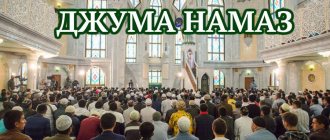Purgatory
- from the point of view of humanity, presented as an independent form of existence, a mysterious place located in the middle of Dante's Divine Comedy,[1] in which the souls of dead people, stained with dirty deeds, are pre-sanitized for departure to hell or heaven according to the purchased tickets. Unlike hell, heaven or non-existence itself, where the dead go for permanent residence, they go to purgatory for temporary residence.
How it really happened[edit]
As you know, in a multidimensional absolutely infinite Universe (in which our relatively infinite Universe occupies only one floppy disk) there live great immortal beings who while away their long hours with gatherings, friendly shootouts and conversations about mimosas. For a long hour they rejoiced at their immortality, but over time they began to get tired of such a life: creatures less and less have any idea how they would spend the next Saturday, and at the same time the next hundred thousand million years. One of their latest inventions was a new entertainment, a computer game turned into an attraction, a version of which adapted for the units of this game was called “The Sims”. The game boils down to the fact that a great immortal being gets at his disposal one unit, which must go through his entire existence from infancy to death. After the death of the character, the player has a choice: end the game immediately, sending his hero into oblivion, or go to Purgatory, where he continues the game on one of two available levels, depending on the character's reputation.
It is to this game that the whole essence of our Universe comes down, and since the main property of the Universe is its absolute incomprehensibility, most likely, imperceptibly for us, it has already changed, turning into something completely different in its essence, but not perceptible to any of the senses of any of the living creatures are different from the previous Universe. One way or another, it is no longer possible to speak about the truth of the previous paragraph with complete confidence and, therefore, it is no longer possible to describe Purgatory from the point of view of great immortal beings, because it is not at all necessary that in the current history of the current world these guys, in principle, ever existed. Therefore, further on, Purgatory will be described exclusively from the point of view of humanity, which will be presented as an independent form of existence, comprehending the structure of being, or non-being, independently, without relying on the theses laid down by other forms of existence.
Cast
- Viktor Stepanov - Guard Colonel Vitaly Nikolaevich Suvorov, Chief of Staff of the 131st Omsbr
- Ivan Ganzha - Captain Ivan, officer of the 131st Omsbr
- Roman Zhilkin - Lieutenant Igor Grigorashchenko, tanker, commander of the only surviving T-80 tank
- Sergei Rost (appears in the credits under his real surname Titivin
) -
tanker Bogdash, operator-gunner of the only surviving T-80 tank
(Bogdash is a surname, nickname, or a diminutive form of a name, it is not specified in the film) - Alexey Gushchin as Kostya “Pitersky”, GRU special forces soldier
- Vyacheslav Burlachko - “Cobra”, GRU special forces
- Alexander Baranov - “Gyurza”, GRU special forces soldier
- Georgy Antonov - sniper of the 131st Motorized Rifle Brigade Pasha Naryshkin
- Vladimir Belov - sergeant major of the federal troops
- Dmitry Nagiyev - Dukuz Israpilov, Chechen field commander, former surgeon at the Grozny city hospital
- Konstantin Butaev - Shirvani, assistant to field commander Israpilov, former head physician of the Grozny city hospital
- Irina Veselina (Sotskova) - the first Lithuanian mercenary sniper, former biathlete
(“White Tights”) - Victoria Matveeva - the second Lithuanian mercenary sniper, former biathlete
(“White Tights”) - Nikolay Alekseev - Aslan, action movie
- Anatoly Fedorov
- Vladimir Rymiga
- Evgeniy Rakov
- Yuri Kuznetsov - Sergeant Major Ogolovyov
(episodes not included in the film) - Vladimir Gostyukhin - Colonel Tyrtyshny, commander of an armored column
(episodes were not included in the film)
Purgatory as a social institution[edit]
The main task of Purgatory is the development and formation of personality during that difficult period when the personality has completed the first stage of its existence, parting with the material shell. It is in Purgatory that a person first comprehends the whole essence of existence, as well as the meaning of life, which boils down to a constant search for the meaning of life and shaving barbers.
Purgatory gives the individual all the necessary skills and knowledge that will be useful to him in Eternity; first of all, he introduces him to a new, non-material form of existence. After some indefinable period of time, the person moves, depending on the degree of comprehension, to one of the following social institutions: Paradise (budget), Paradise (on a paid basis), Hell (for a period of one and a half relative eternities [2]) or Peace (for a period of absolute eternity [3]). In particularly advanced cases, it is possible to return to the material shell and go through the first stage of existence again.
Notes
- [www.m-rnagiev.ru/main.php?id=chistilishe&rid=269 Nevzorov brought down a house on the actor], Kino Park Magazine, Moscow (10/01/1997). Retrieved September 28, 2009.
- Kazakov, Alexey
[www.afisha.ru/article/1499/ There is power]. Poster. All the entertainment of Moscow. No. 75 (March 4, 2002). Retrieved September 28, 2009. [www.webcitation.org/65fDP6FcX Archived from the original on February 23, 2012]. - “Alexander Nevzorov showed “Purgatory,” which is worse than hell” Komsomolskaya Pravda
October 22, 1997 - Miller, Vladimir
[www.forumklassika.ru/showthread.php?t=13351&p=489872#post489872 Low salts]. Forumclassika. Retrieved January 23, 2010. - [www.youtube.com/watch?v=BxKqtLRl-GE Gyurza]. Retrieved July 1, 2010.
- [www.youtube.com/watch?v=JkzNEBgpBBg#cutid1 Assault on Bamut!]
Purgatory structure[edit]
It could have reminded anyone who ended up in Purgatory of a maximum security college, if, of course, the soul of a deceased person, fighting and crashing out of the tenacious hands of death and flying on a flimsy boat under the control of the suspicious old man Charon along the stormy waters of the Lethe River, was so relaxed and carefree, to draw various analogies and write letters to relatives “Mom, I was received very well. The food here is delicious and there is hot water, not like you have there.”
A soul that finds itself in Purgatory immediately begins to receive basic average cleansing. As part of the basic average purification program, each soul, regardless of the life lived, atones for seven obligatory sins over the course of eleven relative eternities. In addition, there are several secondary sins that are atoned for faster and for overall development. If the soul expresses a desire, it can atone for additional sins on a paid basis (for example, insincere love for the Communist Party, sincere love for the Communist Party, reductio ad absurdum, or lack of faith in Santa Claus).
During the process of cleansing, souls are explained in detail why it is wrong to sin like this, explanatory conversations are held, and they are also invited to suffer a little in order to better learn the lesson. A psychologist and political officer also work with souls. In their free time from atonement for sins, those in Purgatory can do their own thing, in particular, independent atonement for sins, short excursions into a previous life in the form of ghosts, community service, or merchandising based on dreams.
At the end of purification, all souls undergo the One Last Judgment, at which their future fate is determined.
To the origins
Certain retribution for unseemly actions is, of course, provided for in all religions. But ideas about good and bad often diverge radically. To give an example of this, one need not look too far. Even the Old and New Testaments are not at all similar in their definition of moral values. In the first, victory at any cost, triumph over enemies by cunning, and spiritual strength are more cultivated; the second, on the contrary, teaches humility and submission.
Christianity directs a person to righteousness, which means sacrifice, supported by suffering. This creed expects from a person love for his neighbor, patience and forgiveness, at the same time, frightening him with punishment for lack of righteousness after death, that is, hellish torment. The Old Testament does not say at all what purgatory is, although many, over time, tried to interpret individual phrases from this ancient book in their own way, linking them to later ideas.
Appearance[edit]
In order not to traumatize believers, Purgatory is able to take exactly the form that a soul who gets there expects to see. In general, for everyone it has its own unique, unique appearance, which maximally satisfies the expectations of this “everyone”. With the exception of some particularly creative people who were surrealists in life and imagined Purgatory in the form of a heap of cubes, cones, sines and catalytic converters, representatives of the same faiths saw Purgatory in approximately the same way.
- In the concept of the Orthodox Church, Purgatory does not exist. According to the teachings of the church, angels take the soul of the deceased and transfer it to a certain place where the soul arrives in anticipation of the Last Judgment and only the church can alleviate the fate of the soul. It is surprising that the Orthodox Church calmly divides zero by zero, where the absolute manifests itself in the father, son and holy spirit, and then on an increasing scale. For the Orthodox, Purgatory diligently pretends that it does not exist at all, and the soul that finds itself in it simply remains perplexed as to what is happening to it, where it is, where the Last Judgments are held here, and why a psychologist and political officer are constantly working with it.
- Catholics believe in the existence of Purgatory, but do not worry too much about its appearance. As a rule, Purgatory appears before them in the form of a huge, vague something.
- Buddhists. To them, Purgatory looks like nothing. A grandiose nothing with no nothing, in which no one is doing anything, and no psychologist or political officer is working with anyone. It was not for nothing that these Buddhists considered emptiness to be a creative principle. It is already known about dark matter, which is a vacuum, which turns out to be full of processes occurring at such unimaginable speeds that even light is not left. There is so much new information for scientists that is in no way connected with Purgatory that they have to again remember Socrates and many brilliant truths that were so painfully born, but have already been buried.[4]
- If a person was a sanguine person, a scholastic or an ancient Greek at heart, then he will see Purgatory as if it were standard ancient Greek and believe that pouring from empty to empty, rolling a stone uphill and listening to a psychologist with a political officer are real punishments, although his , probably, were never boiled in primordial borscht and split into muons without anesthesia.
- Avid motorists saw Purgatory as a huge car wash. Direct atonement for sins took place by squeezing the soul of the redeemer between two rollers, followed by its complete cleansing of desires, suffering, attachments, dust, dirt, soot and radioactive isotopes.
- For a narrow circle of guys who believe that on the day when the green sun of life first illuminated the valleys of the heavenly continent of Avshirnakh, the great all-generating shoe named Shag spat out the first man, Purgatory has a hefty boot turned inside out, since, in their opinion, every person, dying , is eaten by a great all-consuming shoe named Top.
End of the world
Unlike Christian ideas, the final struggle of the forces of light with evil in Scandinavian mythology did not end at all with the victory of good. According to the beliefs of these people, at the end of time, the final battle of Ragnarok awaited everyone. During the final period of fierce battles and horrific events, both people and gods perished. And there was no hope of redemption and no possibility of changing anything. True, the revival of the human race was still foreseen. According to the prophecies, this was to be facilitated by Liv and Livtrasir, the two surviving people.
Purgatory reforms[edit]
One of the problems with Purgatory is its absoluteness. Regardless of what dimension, in what Universe, at what point in space and time, in which of the probabilistic worlds and in which of the realities you died, the same thing awaits you in Purgatory. Therefore, the laws in force in Purgatory are common to everyone; for a long time, various embarrassments occurred. So, for example, initially only those who repented of their deeds before death were allowed into Purgatory, and everyone else was sent either directly to hell on the first flight, or (after successfully passing a short test for righteousness) to heaven. But it so happened that in most developed worlds, as a sign of repentance, it was customary to tear out the Fiery Tentacle of the Devil, growing directly from the womb. In order not to have to figure it out for a long time, they began to admit only those whose faces showed that this was a creature that had pulled out the Fiery Tentacle of the Devil. As a result, some species of living nature, for example, people, who never possessed the Fiery Tentacle of the Devil, found themselves out of work. Of course, they had a chance to go to heaven, but it was truly an impossible task, because for this you had to be absolutely sinless, but if you thought once in your life, “Oh no, I stubbed my finger,” then it was immediately recorded like selfishness, because right at this moment people are dying in the world, and here he is sad about his finger.
However, because of a few backward creatures, no one was going to change the foundations until the Buddha came and said “well guys, what the hell is this?!” Then it was decided to slightly change the procedure for admission to Purgatory.
Pentafigl, God of Everything, ruler of the world and guardian of the Universe, an old bearded man who spends all his free time solving scanword puzzles, proposed his reform. He believed that only those who, every full moon, donated to him a black lamb born from a white sheep could be allowed into Purgatory, and proposed that everyone else either be hanged by the ears on a juniper tree, or sent to make crossword puzzles. But since in none of the many worlds not a single creature even suspected the existence of the Pentafigl, carrying out this reform would mean the complete devastation of heaven, hell, Purgatory, and indeed all, all places, with the exception of juniper thickets and the offices of crossword compilers. Fortunately, for a stack of new entertaining scanwords, Pentafigl abandoned his reforms and ordered his favorite hamster to do something similar.
After reflecting on the problem, Petafigakl's beloved hamster, being one of the most intelligent creatures in the absolute Universe, capable of solving scanword puzzles even without reading the questions, came to the conclusion that it is impossible to live like this. He proposed that all creatures who have fallen into another world should be divided into sad saints, normal guys, too bad, atheists, bores, scanword masters and guys who believe that on the day when the green sun of life first illuminated the valleys of the heavenly continent of Avshirnakh, the great all-generating shoe named Shag spat out the first person. According to the hamster, sad saints should be immediately sent to heaven in absentia, before they begin to admonish everyone else, turning them into the same sad saints. The hamster advised those who were too bad to be sent to hell or at least hanged by the ears on juniper bushes. He suggested that atheists should not be touched at all; anyway, they would not believe in hell or heaven, or even in the ability of the beloved hamster Pentafigl to solve scanwords without reading the questions. The boring hamster considered it necessary to send him back to life, because the afterlife is sickening without them. The wise rodent recommended that the masters of scanwords be sent straight to the chambers of the Pentafigl, and normal guys and guys who believe that on the day when the green sun of life first illuminated the valleys of the heavenly continent of Avshirnakh, the great all-generating shoe named Shag spat out the first person - in Purgatory, where they could to finally purify oneself, to know the essence of existence and to make sure that there are no significant shoes in the history of the Universe before going to heaven.
Of course, no one listened to the hamster. As a result, almost everyone after death either becomes a sad, holy bore[5] and is sent to hell for despondency, or is immediately sent to Purgatory, unless, of course, he manages to fight his way through the crowd of atheists who will try to explain to him that everything around him is a figment of a sick imagination , or it turns out to be bombarded with a ton of complex scanword puzzles to the envy of Pentafigl. And yet, the reform took place, thanks to which people also had the opportunity to visit Purgatory and then go to heaven.
Dante's Inferno
A comprehensive understanding of what purgatory is, according to medieval Catholic canons, can be obtained by reading Dante’s “Divine Comedy,” which experts date to around 1300. The underground underworld there is presented in the form of a clear structure and has nine circles, in the center of which is Lucifer, frozen to a state of ice.
According to Dante, the closer the circle is to the center, the more serious crimes the souls of the dead imprisoned there committed during their lifetime. And in the 9th, last circle, the most terrible sinners languished. The outer border region of Dante's hell was a refuge for pitiful souls who did not particularly distinguish themselves in anything. There lived ghosts who were not famous for either good or bad deeds. They were kept company by faceless angels, wavering between God and the Devil.
In this literary work, not only Christian ideas are visible, but the imitation of Aristotle and his ancient views on the afterlife is easily traced. It is impossible to find an exact definition of what purgatory is here, but the gradation of sinners according to the severity of their deeds is still clearly reflected.
Buildings of Purgatory[edit]
Despite its changeable appearance, in any of its images it has certain structures, namely:
- Main Hill, where the main cleansing processes take place
- A gutter for soul cleansing
- Metamorphic field generator, thanks to which Purgatory has the ability to change its appearance
- A place where you can call the guardian angels of law and order
- A shoe store whose motto is “It’s not good to walk around in bad shoes, even if you’re dead.”
- Augean stables just in case
- Political officer's house
History of the study[edit]
The first in whose myths the concept of Purgatory as a place where the souls of the dead await their further fate appeared were the guys who believe that after death a person finds himself in the heel of a great all-consuming shoe called Top, from where sinners are sent to the sweaty, stuffy and foul-smelling sock of Top, and the righteous ascend by laces directly to the heavenly continent of Avshirnakhu, where the green sun shines brightly, and all the inhabitants wear the best shoes.
Dante's studies gained great popularity, in which he presented Purgatory in the form of a multi-layered mountain, divided into floors, topped with an elevator to heaven. In his descriptions, Dante was so sincere that the Catholics took his words at face value and urgently changed their worldview, pushing Purgatory there. Those who tried not to believe in Purgatory and prove that, they say, it never existed, were faced with accusations of heresy and a warm, cozy fire.
A big step in the study of Purgatory was made by the immaculately born son of the archpriest and protopresbyter, whose name and existence were lost. After much thought, he said, “Perhaps Purgatory still exists. Because why shouldn’t it exist?” One ancient Aztec priest agrees with him, saying something in the ancient Aztec language.
However, the main problem with the study of Purgatory is that in order to do good research, you need to die properly. It’s not easy to wake up, spend a conventional day and then fall asleep, which is actually a rehearsal for real death, but after death the soul, which has comprehended the whole essence of being or non-being, has no desire to conduct any research and share its results with people .
Data
- In the film, soldiers more than once “go through” curses at the mediocre actions of the command, and Colonel Suvorov once makes it clear who is responsible for what is happening: “A good, damn, gift from the Russian military registration and enlistment offices to Dzhokhar Dudayev and personally from Pasha Grachev!” - he will say when it comes to young soldiers.
- The words that Captain Ivan (the hero of Ivan Ganzha) says to the Chechen commander Israpilov before his death are words from an interview with Nevzorov of a real soldier of the first Chechen campaign.
- refused to support Nevzorov during the filming. According to Nevzorov, “they gave me an invoice for everything I asked for, and there I had to pay for each spent cartridge... 5 or 6 thousand rubles! And I need millions of them, because everything in the battlefields is covered with spent cartridges. Apparently the army read the script and was not happy. Therefore, the Internal Troops provided us with assistance. Soldiers who passed through Chechnya were filmed as extras.”[3].
- The hero Vyacheslav Burlachko (call sign “Cobra”) is voiced by the octavist of the St. Petersburg Chapel Alexander Orth, a man with one of the lowest voices in the world[4].
- Prototypes: Guard Colonel Vitaly Suvorov - Colonel Ivan Savin, commander of the 131st Omsbr, Hero of Russia (posthumously).
- Dukuz Israpilov - field commander Khunkar Pasha Israpilov.
- Igor Grigorashchenko is a participant in the assault on Grozny (1994-1995), senior lieutenant Igor Grigorashenko (Nevzorov met him in January 1995 during the filming of his documentary “Hell”).
- “Cobra” - GRU Major Alexey Efentyev (call sign “Gyurza”)[5]. However, the film features the hero Alexander Baranov, also with the call sign “Gyurza”. Viewers of the film may be confused about who the prototype of the real special forces soldier is.
- Kostya “Pitersky” - Konstantin Mosalev[6], special forces soldier of the 793rd separate company of the Special Forces.
Alternative opinion: Purgatory is all around us[edit]
| This text is understandable only to those who are pure in soul. And if someone is without sin, then let him be the first to throw a stone at the monitor. |
One issue cannot be excluded from consideration. Maybe Purgatory is under our feet, around us and in ourselves?
What is Purgatory? This is a place where someone cleans something. This is not necessarily the separation of souls from sins. In the same way, the word “clean” can mean separating the wheat from the chaff, cracked pistachios from uncracked ones, semolina from lumps, and flat from cockroaches. So why does the Orthodox Church completely exclude the concept of Purgatory, while carefully applying the purification scheme, separating something from something? Is it an instinct of self-preservation or an assumed obligation? Perhaps the spread of the idea of Purgatory around us will lead to people forgetting the church itself, as the only connection with higher powers, and will begin to cleanse themselves? Likewise: how to determine your coordinates? Which Universe exactly are we in? The answer is obvious: simply clear everything and everyone, clear, if not from history, then at least from your consciousness, from your idea of objective reality, everything except one material point - your location. As a result, something will be cleared to the point of complete absence of dark spots. And how will this not be Purgatory? However, in order to apply such a concept as Purgatory, you must know exactly what is included in your Universe, absolutely everything, including letters, symbols, sounds, thoughts and lumps of semolina.
Everywhere there is a pattern of purification at work, separating this from that, and combining it into another, whatever that means. The trouble is that they can clean you too, without asking your prior consent and without even warning you about the planned cleaning. And if you are just a potato or a banana, then parting with the peel was only a matter of time for you, but if you are a more intelligent creature, then Purgatory may turn out to be a gloomy state for you. And here you can envy the photon with its zero rest charge and zero mass. Being nothing, he will clearly not become a victim of the purge, since he will not turn into nothing, but will remain one. Yes, this is the rare case when a photon can be envied.
You need to be very careful when using Purgatory technology in your head. And do not forget about a certain zero state of rest “photon”. It is from such a state, if suddenly something is not clear, in the actions of seven billion people just like you, oscillating between positive and negative charge! You can continue cleaning...
Damn it guys. I shouldn't have told you this.
>Barefoot on cold stones
The tradition of pilgrimage to St. Patrick's Purgatory originated in ancient times and has survived to this day. Pilgrims walked to Lough Derg through forests, swamps, rocks - certainly barefoot. Having crossed to the island, they descended into a crevice surrounded by a fence among the rocks. And they remained there for many hours, continuously praying. Legend said that anyone who dozed off in the darkness and interrupted prayer was immediately dragged away by demons.
The complexity of the path and the pilgrimage itself correlated with the theme of the test bridge mentioned above. In some legends, it was not only narrow, but also covered with sharp iron spikes. Only humility could help overcome it. And in the old novel “The Knight of the Cart,” Lancelot generally had to overcome the sword bridge, walk or crawl straight along the blade.
Now pilgrims can use transport to get to the lake. But then you still have to take off your shoes and walk around the island barefoot. And then pray all night in the open air. And so on for three days. At the same time, there is a strict fast; you cannot eat at all on the island on the first day. On the second day, they give you a cup of tea and a loaf of bread. They don’t particularly like tourists here – there isn’t even a souvenir shop on the island. But for the Irish, whether they live in their homeland or in any other country, the pilgrimage to Lough Derg is the most important custom. The only thing comparable to it is climbing Mount St. Patrick, also barefoot and in the night - towards the dawn.
Notes[edit]
- No, no, this is not the Frenchman who killed Pushkin
- In the next world there is no concept of time, which is why absolutely all events happen right now. Thus, if an event has not ended at a particular moment, then it is generally accepted that it will always be there. That is why any event lasts “relatively forever”, which does not prevent it, however, from ending in five earthly seconds
- Absolutely eternal processes are considered to be those that will remain eternal, even if in the next world they suddenly come up with the idea of dividing months into weeks
- Good advice: if you are bombarded with a lot of incomprehensible and useless information, remember Socrates. We have to do at least something in such a situation!
- And if you’re dumb, like a tree, then a baobab
| p·o·v Purgatory is a sacred cow | ||
| Confessions | Buddhism · Taoism · Hinduism · Islam · Don't care · Christianity ( Catholicism · Orthodoxy ) · Extremism · Paganism | |
| Divine concepts | 10 Commandments · · Angel · Apocalypse · Atheism · Bible · Sin · Indulgence · Catholic Gospel · Koran · Punk Prayer · Heaven · Seven Deadly Sins · Purgatory | |
| Gods | Anubis · Atheus · G-d · Krishna · Cthulhu · Flying Spaghetti Monster · · Satan · Seth · Shiva | |
| Personalities | Adam · Eve · Jesus Christ · Snake Biteer · Moses · Pope · Prophet Muhammad | |
| Portal "Religion" | ||
Dogmatic consolidation of ideas
This concept was first defined in Catholic theology by Pope Innocent IV. This happened in 1254, but only almost two centuries later did its final dogmatic consolidation occur. What does the word "purgatory" mean? It is precisely translated from Latin as “purification by fire”, and is written Purgatorium.
By this concept, official Catholicism means an intermediate stage of the afterlife between hell and heaven. The souls of faithful people who did not have time to confess before death, having repented of all their sins, go there.











